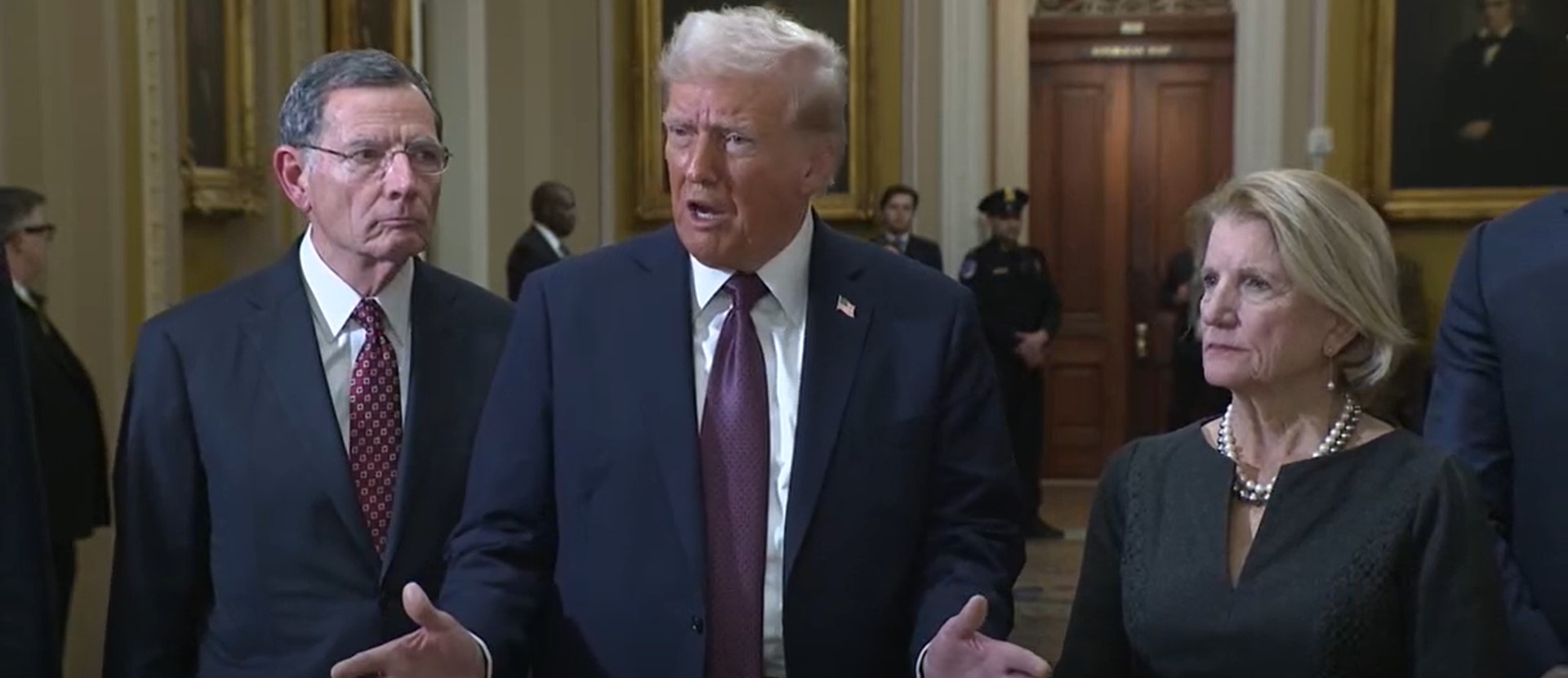Commentary: Big Tent Ideas
J.D. FOSTER: Trump Is Right About The Debt Limit — Kill It

(Screen Capture/CSPAN)
President-elect Donald Trump has called for either eliminating the debt limit or pushing it far into the future. Many conservatives are aghast, with federal debt in the trillions predicted to soar further, another unfortunate legacy of the Biden administration. Even so, Trump is right.
In theory, the debt limit forces policymakers to review the big-picture results of their fiscal policies. It is a second bite at the apple after Congress passes a budget resolution, tax legislation and the annual spending bills.
In practice, the debt limit generates typical Washington theater with no meaningful consequences except to create the possibility of an economic disaster.
The good news is that failure to raise the debt ceiling would produce an instant balanced budget. The bad news starts with the fact that the Executive Branch lacks the legal tools to implement a balanced budget. Absent detailed legislation, the president would have to prioritize certain spending while shorting other spending and without the authority to do so.
Worse, capital markets worldwide would … well, no one really knows. The result could be the financial equivalent of the L.A. fires or a tempest in a teapot. The good bet favors conflagration to make the 2008-2009 financial crisis seem like a wayward ember but, again, no one knows.
As these are risks no sane person would run, a debt limit dustup is analogous to prescribing medicine that clinical trials have shown to be ineffective, but that could be harmful or fatal to the patient.
Debt limit defenders object that federal debt has soared and massive deficits must be addressed. They are right. Publicly held federal debt after adjusting for inflation rose by $12 trillion over the last decade and by twice that amount over the last 40 years. But after such a terrible increase in debt, it is pretty clear the debt limit fails to limit anything.
Defenders observe that past debt limit fights occasioned every modern major deficit control measure from Gramm-Rudman-Hollings in 1985 to the 2011 Budget Control Act. Right again. But it does not matter because those measures have not mattered.
Consider that over 40 years Congress passed a handful of deficit control measures, the most recent 14 years ago, and none have had a lasting impact on deficits. Are empty-gesture budget controls your best argument for running the risks of economic disaster?
Debt limit debates have another pernicious consequence — they encourage fraud. For many, especially certain Republicans, the occasional debt-limit fight provides an opportunity for empty posturing for the folks back home without having to actually change any policies.
We clearly have a huge fiscal problem and the debt limit is a failure. So, what is the alternative?
Some call for adopting a Balanced Budget Amendment (BBA) to the Constitution or maybe a German-style debt brake. These are worthwhile proposals, but for many politicians such notions offer the advantage of providing another opportunity to sound conservative while spending unabated. Further, passing either a BBA or debt brake would take years. What would force Congress to fiscal sobriety in the meantime?
Resuming a sustainable fiscal policy requires just one thing — a firm commitment by the president and a substantial majority in Congress to bring the budget under control. Oh, is that all?
Yes, and anything else is just possibly dangerous theater.
Better budget processes and clever gimmicks like the debt limit are fun to debate, but Congress will only regain control over fiscal policy if it determines to do so. How that comes about short of financial markets throwing a hissy fit over federal deficits is anyone’s guess. In the meantime, the debt limit is a useless and dangerous gimmick and Trump is right to call for its repeal.
J.D. Foster is the former chief economist at the Office of Management and Budget and former chief economist and senior vice president at the U.S. Chamber of Commerce. He now resides in relative freedom in the hills of Idaho.
The views and opinions expressed in this commentary are those of the author and do not reflect the official position of the Daily Caller News Foundation.
All content created by the Daily Caller News Foundation, an independent and nonpartisan newswire service, is available without charge to any legitimate news publisher that can provide a large audience. All republished articles must include our logo, our reporter’s byline and their DCNF affiliation. For any questions about our guidelines or partnering with us, please contact [email protected].

